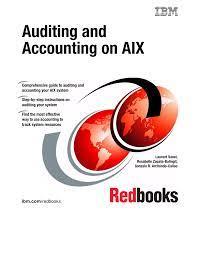Question
P Corporation, a widely held conglomerate, has 200,000 shares of a single class of common stock outstanding. Each share is worth $90. P has E&P
P Corporation, a widely held conglomerate, has 200,000 shares of a single class of common stock outstanding. Each share is worth $90. P has E&P of $900,000. P plans on merging with S Corporation, which manufactures furniture. Ss 2,000 shares are owned equally by I, J, K, L, and M. I and J each paid $50 per share while the other three shareholders paid $120 for their shares. Ss stock is now worth $100 per share. S has $250,000 of E&P. I and K are also creditors of S. Each paid $75,000 for Ss 10-year bonds. The bonds have a $75,000 face value, pay 8% interest and are currently worth $90,000 each. Under the terms of the merger agreement, each S shareholder receives 500 shares of P Corporation. Each of Ss creditors receives 1,200 shares of S stock.
What gain or loss is realized and recognized by the shareholders and creditors of S?
What is each shareholders basis for the stock received?
What are the tax consequences to P and S?
Answer questions (a) through (c) above, assuming each S shareholder receives 400 shares of B stock and $5,000 cash and each creditor received 1,250 shares of P stock for its bonds.
P Corporation, a widely held conglomerate, has 200,000 shares of a single class of common stock outstanding. Each share is worth $90. P has E&P of $900,000. P plans on merging with S Corporation, which manufactures furniture. Ss 2,000 shares are owned equally by I, J, K, L, and M. I and J each paid $50 per share while the other three shareholders paid $120 for their shares. Ss stock is now worth $100 per share. S has $250,000 of E&P. I and K are also creditors of S. Each paid $75,000 for Ss 10-year bonds. The bonds have a $75,000 face value, pay 8% interest and are currently worth $90,000 each. Under the terms of the merger agreement, each S shareholder receives 500 shares of P Corporation. Each of Ss creditors receives 1,200 shares of S stock.
a. What gain or loss is realized and recognized by the shareholders and creditors of S?
b. What is each shareholders basis for the stock received?
c. What are the tax consequences to P and S?
d. Answer questions (a) through (c) above, assuming each S shareholder receives 400 shares of B stock and $5,000 cash and each creditor received 1,250 shares of P stock for its bonds.
Step by Step Solution
There are 3 Steps involved in it
Step: 1

Get Instant Access to Expert-Tailored Solutions
See step-by-step solutions with expert insights and AI powered tools for academic success
Step: 2

Step: 3

Ace Your Homework with AI
Get the answers you need in no time with our AI-driven, step-by-step assistance
Get Started


